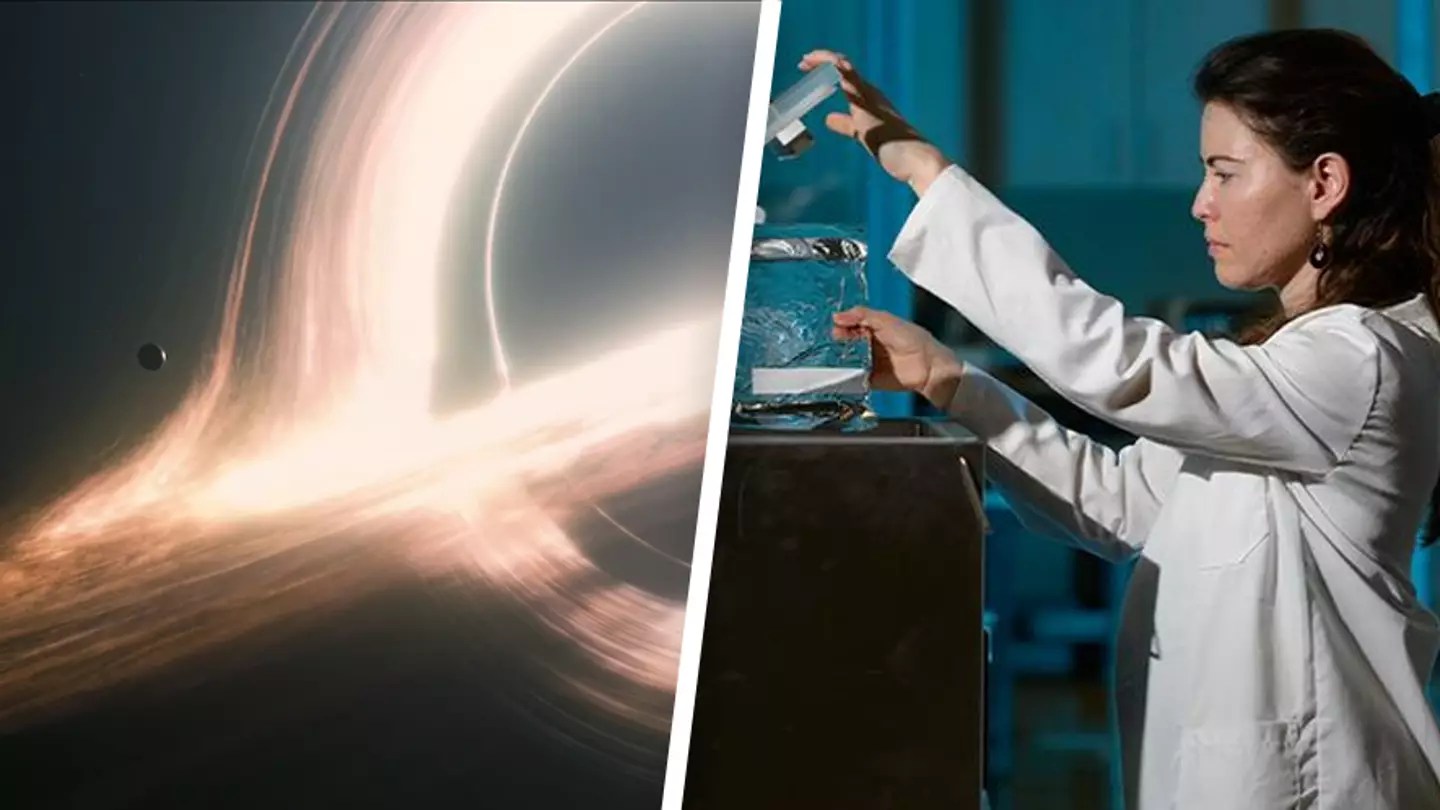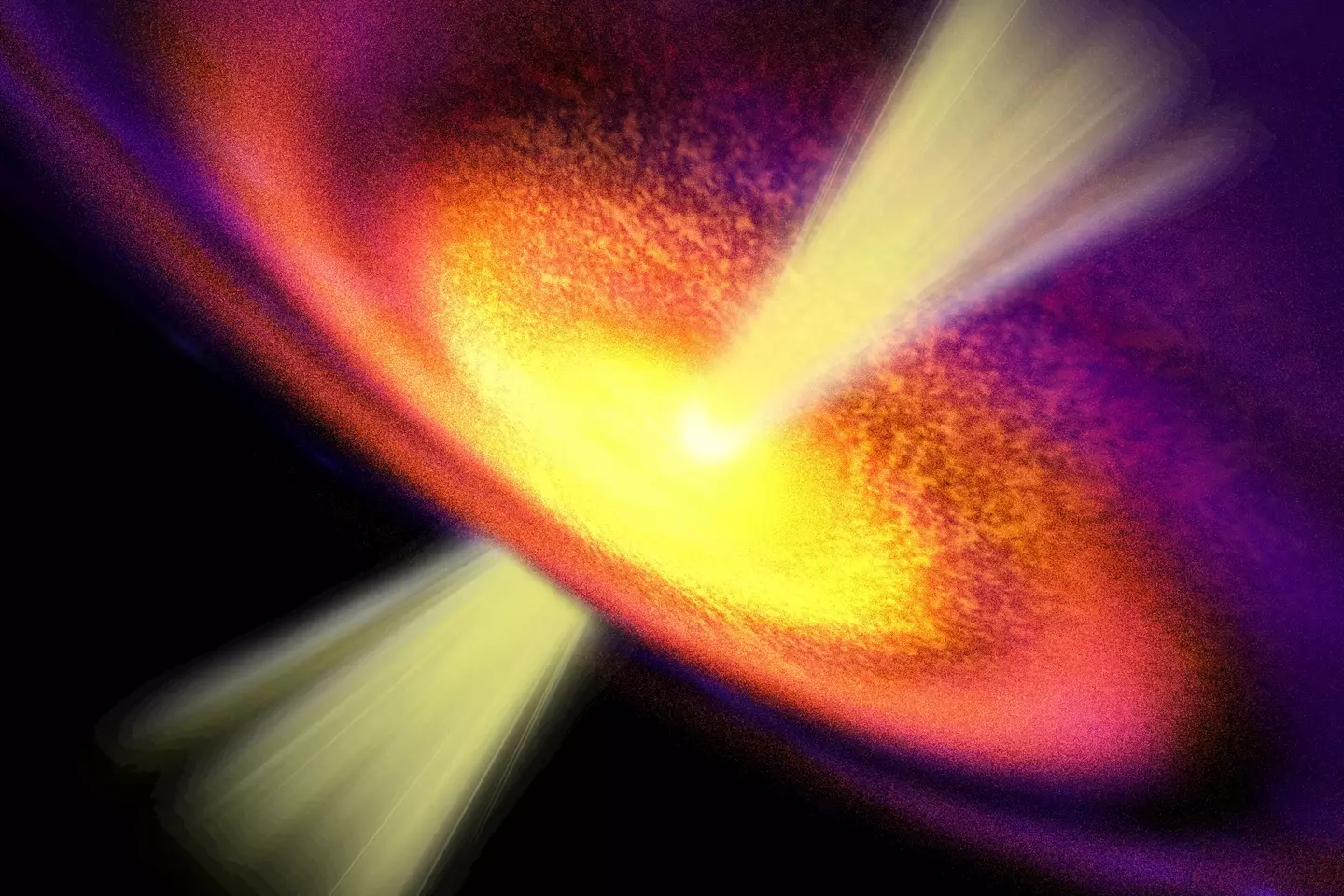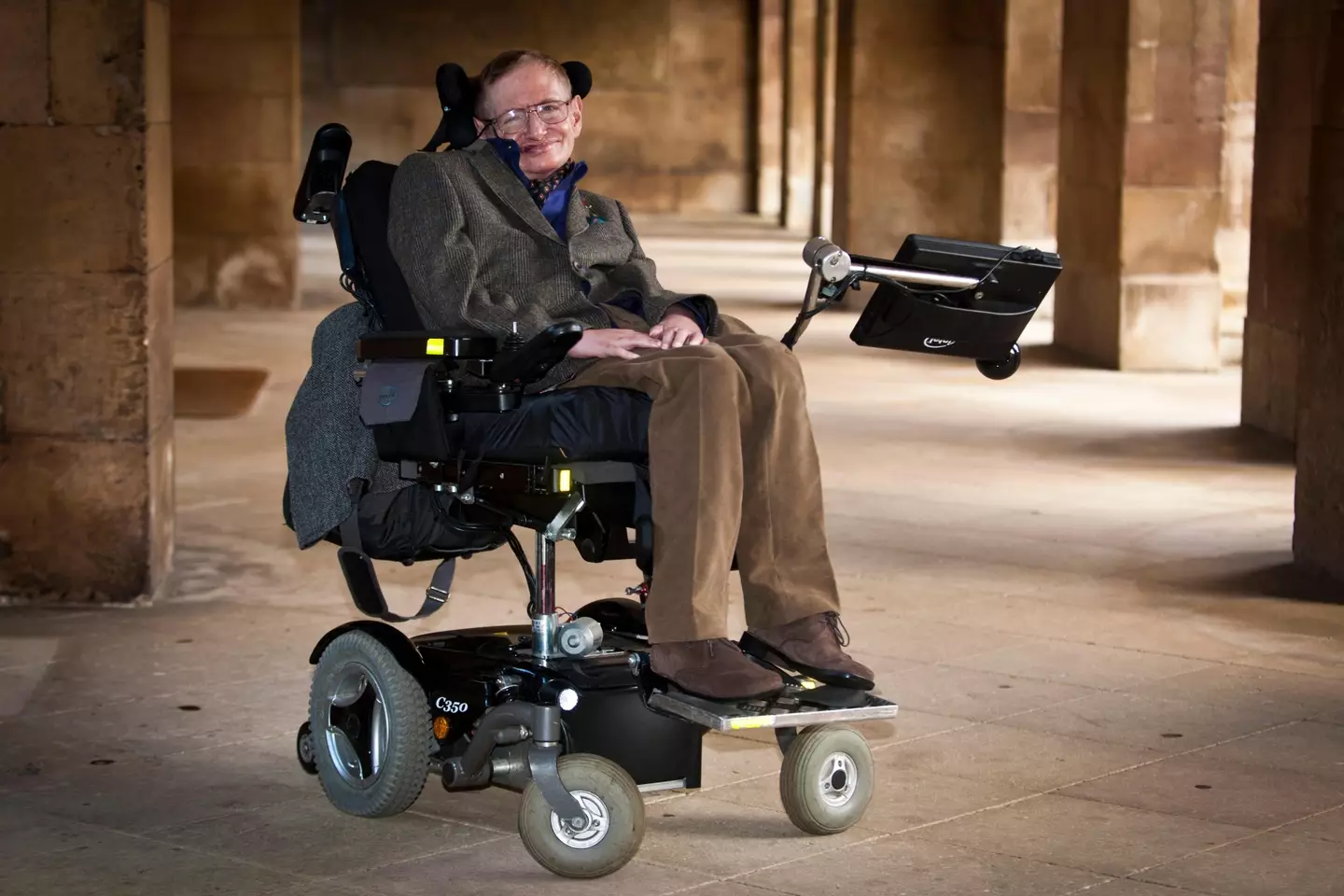
A team of scientists in the Netherlands has created an actual black hole in a lab and watched on as the mysterious space object began to glow.
The team of physicists from the University of Amsterdam created the black hole event horizon in order to study the behaviour of a black hole in a safe, controlled environment.
In astrophysics, an event horizon is a boundary beyond which events cannot affect an observer.
But back to their discovery: the black hole put off a rare form of radiation that was first theorised by none other than Stephen Hawking himself, according to a report from Science Alert.
Advert
The group set out to analyse the properties of Hawking radiation by creating an analog for it in a lab and were surprised when it began to emit a strange glow.

Hawking radiation occurs when particles are created from disturbances in quantum fluctuations, which is caused by the black hole's tearing of spacetime.
The radiation manifests itself in a visible glow, which is odd as the event horizon of a black hole should be an area in which no light or matter can escape.
A black hole is one of the weirdest and most mysterious anomalies in space.
They're an object so dense that, within a certain range of the centre of the black hole, no velocity in the known Universe can manage to escape being sucked in, not even travelling beyond light speed.
But, according to the team of scientists, their lab version of a black hole produced a rise in temperature that matched theoretical expectations of an equivalent black hole system.

The team added that this only occurred when part of the chain extended beyond the event horizon.
What this may indicate is that an entanglement of particles that straddle the event horizon may be crucial when it comes creating Hawking radiation.
"This can open a venue for exploring fundamental quantum-mechanical aspects alongside gravity and curved spacetimes in various condensed matter settings," the science boffins wrote in their paper published by Physical Review Research.
The Hawking radiation was only thermal for a certain range of 'hop amplitudes', the scientists claim, and only occurred under simulations that began by mimicking a 'flat' sort of spacetime.
This suggests that Hawking radiation may only emit thermal radiation within a certain range of situations, and may only be possible when there is a change in the warp of space-time due to gravity.
The crux of it though, is that the Hawking radiation glowed.
And if you're a smooth brain like the person writing this, here's a summary: space stuff is cool.
Topics: News, Science, Space, Black Hole
